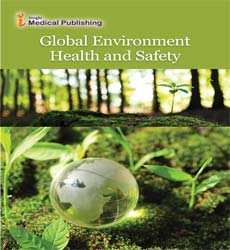Microbial exopolymers: A natural renewable biosolution
Currently, the environmental pollution is a problem that threatens the sustainability of our planet which has led to increasing scientific research in several areas to obtain sustainable biotechnologies. In this sense, the exploitation of natural-derived and renewable biopolymers as a replacement for petrochemical-derived polymers, confining the use of synthetic polymers, has received visibility and interest for applications in biomedical materials and / or in bioremediation Microbial extracellular polymeric substances (EPS) from cyanobacteria and bacteria have displayed a promising potential as alternative to synthetic resources. They can be used in numerous applications in the biomedical fields, such as scaffolds or matrices in tissue engineering, drug delivery and wound dressing, and in bioremediation fields for the removal of organic and metallic pollutants. However, the symbiotic association between cyanobacteria and cellulose- producing bacteria to obtain biofunctional materials has not been exploited. In this research work, these associations will be study through two approaches: (i) bacterial cellulose will be biosynthesized in the presence of the cyanobacteria to include in situ the algal exopolymers and functional compounds in their network and (ii) obtain microcapsules and bioactive films through the inclusion of exopolymers and/or bioactive compounds in bacterial cellulose by bioencapsulation and 3D printing processes. These biomaterials can be used for future applications and for the design of sustainable biofunctional materials, capable of replacing the current synthetic materials.
Open Access Journals
- Aquaculture & Veterinary Science
- Chemistry & Chemical Sciences
- Clinical Sciences
- Engineering
- General Science
- Genetics & Molecular Biology
- Health Care & Nursing
- Immunology & Microbiology
- Materials Science
- Mathematics & Physics
- Medical Sciences
- Neurology & Psychiatry
- Oncology & Cancer Science
- Pharmaceutical Sciences
